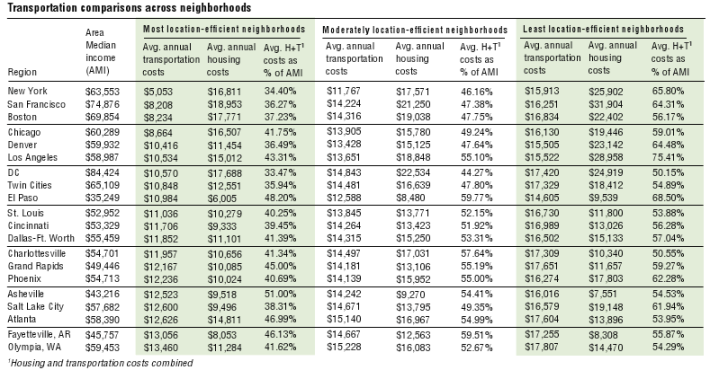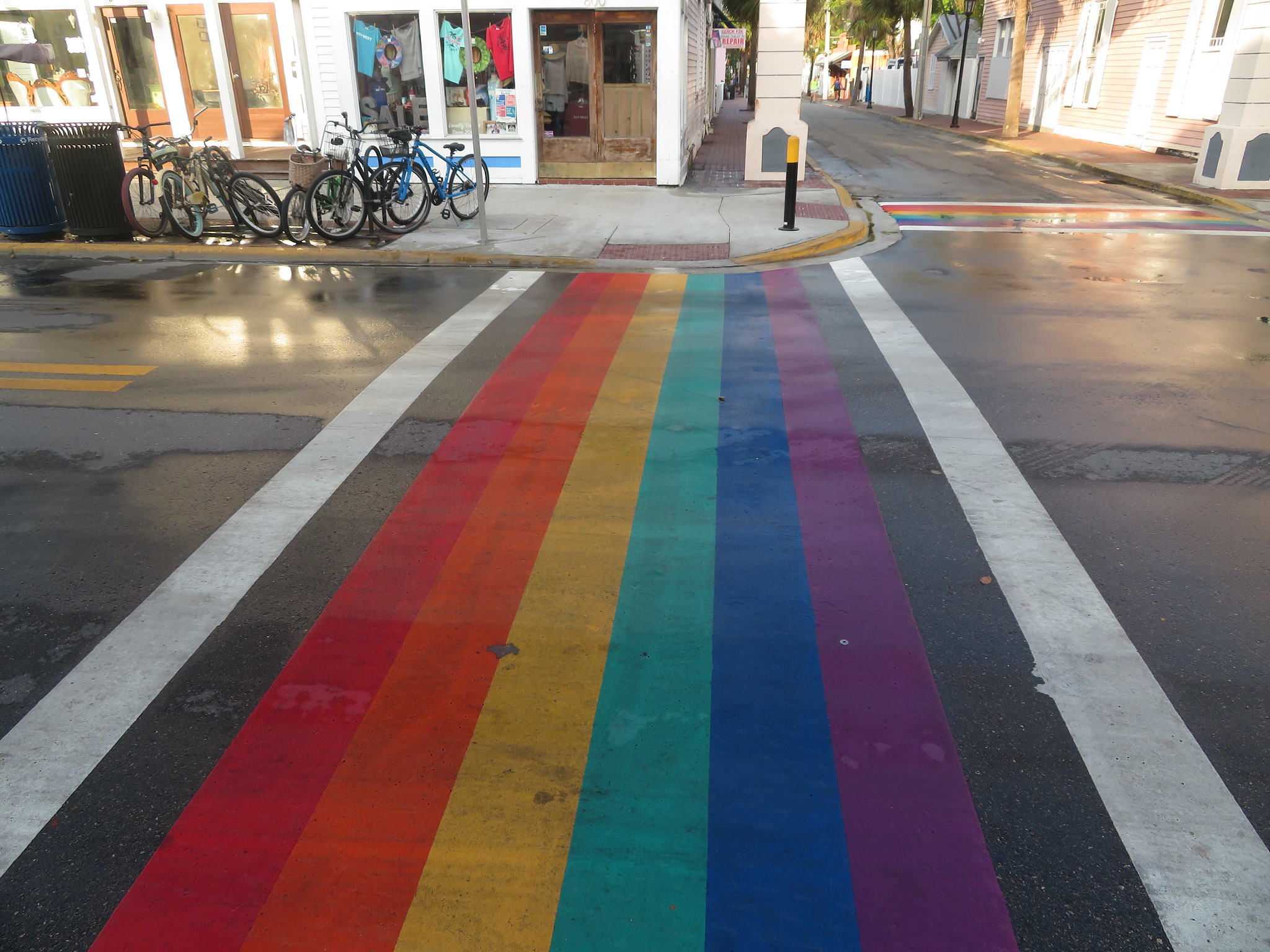
$10,860 in New York City. $5,694 in St. Louis. $4,199 in Fayetteville, Arkansas.
That's what it will cost you, on average, in additional transportation costs to live in a sprawling, car-dependent neighborhood over one that is well-connected and transit-rich. That's according to a new analysis by the Center for Neighborhood Technology, produced for Better Cities and Towns.
CNT analyzed 20 "representative" metropolitan areas. Each area was divided into seven quartiles ranging from most walkable and transit-friendly to the most disconnected and car-dependent. The difference? Well, it adds up.
Transportation costs varied widely from a low of $5,053 in New York City's most well-connected neighborhoods, to a high of almost $17,807 in Olympia, Washington's low-density suburbs.
Some of the most striking differences in transportation costs were between cities with extremely vibrant urban cores and strong transit systems -- New York, Washington, Boston -- and those without. Notice that residents of average neighborhoods in Atlanta, Georgia pay $3,337 more in transportation costs annually than those from New York City's comparable neighborhoods.
Even though many of these transportation bargain cities are known for having relatively high housing costs, the analysis showed that their residents of more location-efficient neighborhoods come out ahead in every MSA. In the most walkable 'hoods in all 20 areas, combined housing and transportation costs accounted for 30-51 percent of area median household income. In the most sprawling neighborhoods -- the least efficient -- these same costs ate up 50 to 75 percent of the average household's budget, according to CNT.
Notably, in some poor-transit, especially sprawling areas, transportation costs were well in excess of annual housing costs. In an especially remarkable case -- Fayetteville, Arkansas's distant suburbs -- transportation costs were more than double those of housing costs.
This research builds in an earlier study from CNT that found combined housing and transportation costs were rising faster in exurban areas than urban. No wonder the exurbs are losing their luster!





